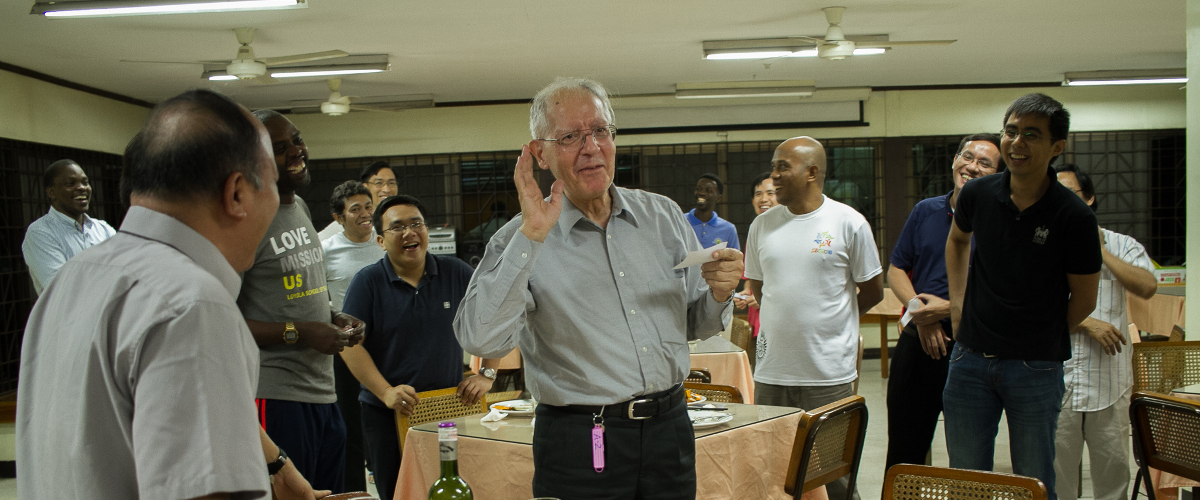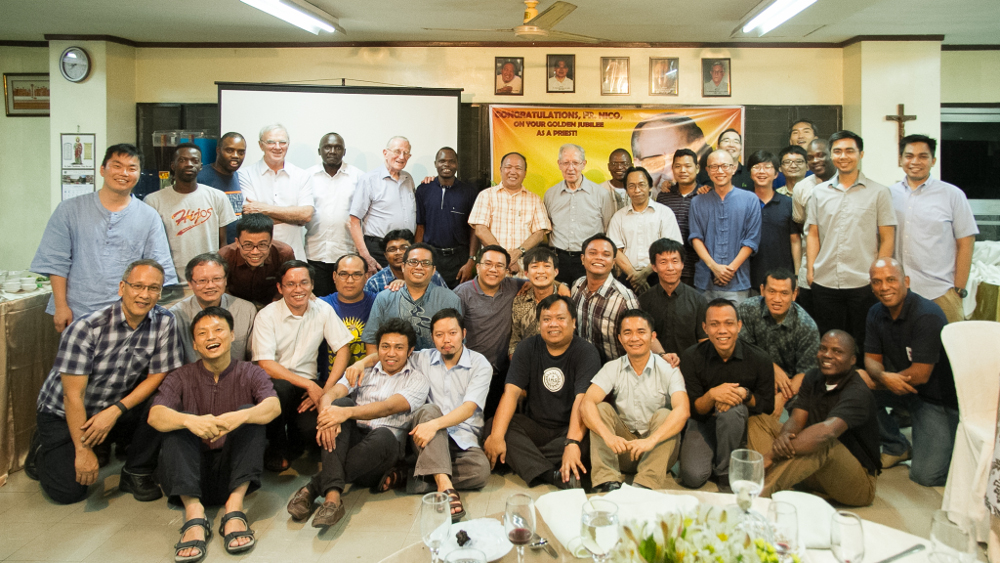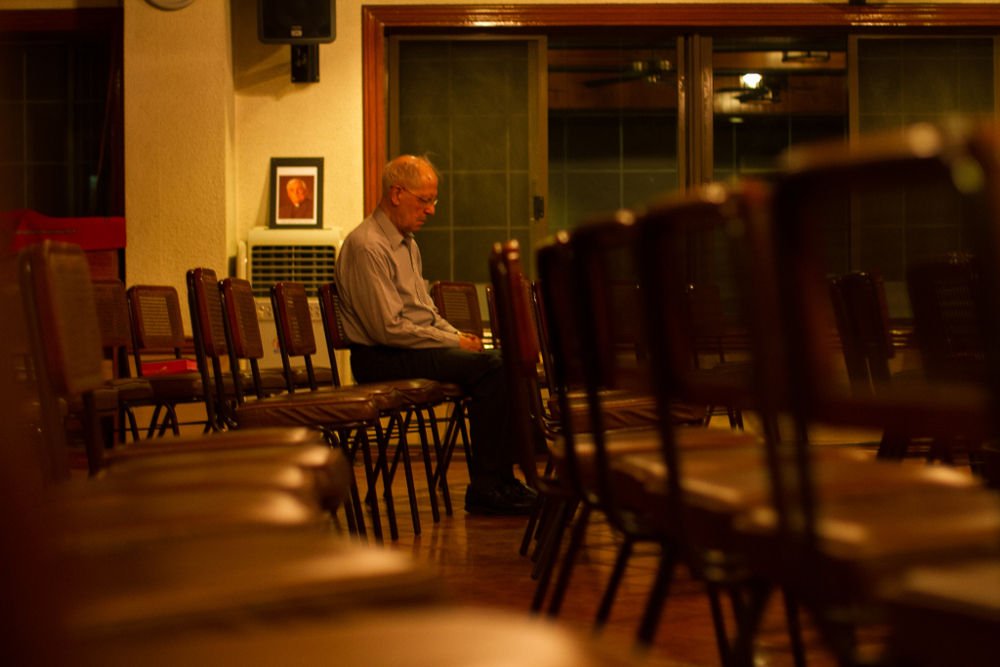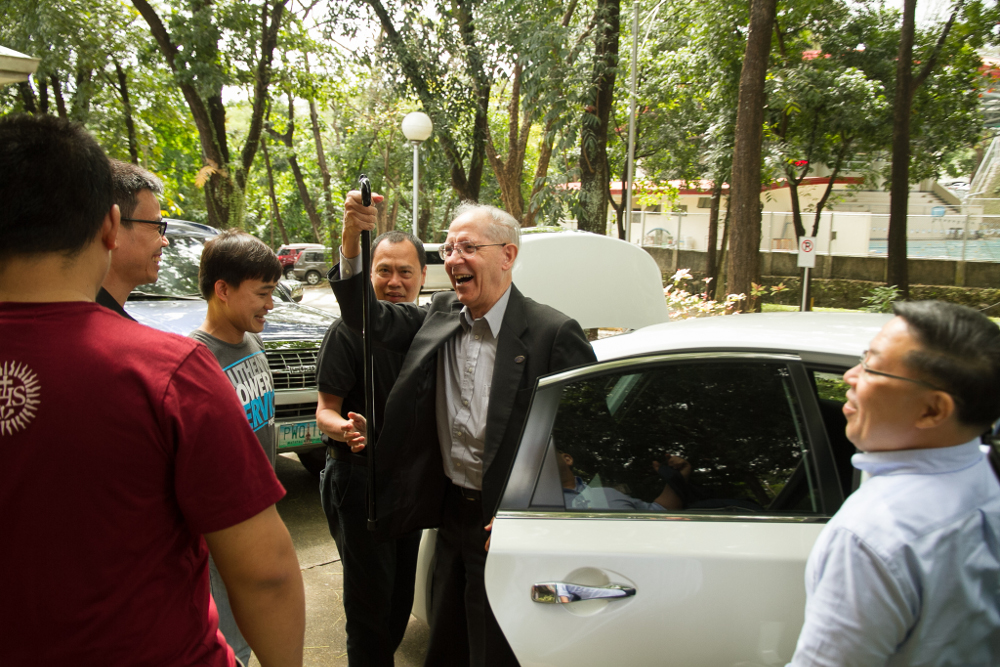
Together with 50 or so other Jesuits who are mostly in formation, I have been living with Fr Nico for more than a year. When asked to write this piece on him I was secretly terrified. I have written about other people before, even Jesuits. Each would take so much time, effort and energy because I would always hesitate at the thought of encapsulating a person’s story in a thousand words. But to write on the former general?
What finally convinced me to get started was a memory of Fr Nico addressing us scholastics in one of our monthly community meetings. What he said has remained with me since: “Be yourself. You will never go wrong with being yourself. But let Christ touch you and enter into your life”. I had expected him to tell us to study harder – which he never said explicitly. (Rather he advised us to form habits of study.) Or maybe mention his constant refrain as general to be persons of depth. But his first official message was startlingly simple yet, knowing who said it, was of great wisdom: be yourself but let Christ touch this self.
In his own unassuming way, Fr Nico strongly encourages us to be ourselves by being genuinely himself to us. And who is this genuine self? An extremely humorous, humble and holy person.

We would soon learn that his jokes, his friendly teasing and that infectious laughter, which seems to come from a very deep part of him, are very much who he is. He is never offensive, not even a tad bit imprudent. He never runs out of jokes and, if he does repeat them, he says them with as much passion and excitement as the first time. But many times, really, what elicits so much laughter and joy from us is not so much the joke itself, but how he says it. On several occasions he will not even get to delivering his actual punch line, because he struggles to conceal his own laughter. How can one not find joy in someone who is elated even by his own jokes?
“Humour is most important in the life of a priest and in religion. We tend to take ourselves too seriously and lose perspective.” This was his response when asked why he seemed to be thrilled anytime a joke was shared whether over meals or in greeting one another in the hallway. Like his good friend Pope Francis, Fr Nico seems to know how central laughter, humour and joy are in religious life, but also how they are not accidental. They require a decision. As the pope says, it takes courage to be happy, because it takes courage to choose Christ and swim against the tide. Fr Nico has taught us that to be a person of humour takes courage and a focus on what is truly of value: “We need to relativise ourselves and see that before God things are all relative and only love is supreme. The Pharisees can be a very serious bunch.”

His humility shows forth not only in our community but outside. He insisted on joining the Arrupe scholastics in their apostolate areas: a public hospital, a home for cancer patients, a centre for indigent children with disabilities or the many chapels and homes we visit in urban poor communities. And his manner of interacting with simple people was the same way he would speak and talk to anyone else. If I could enter into his prayers, I’d bet he relates with God in the same way. He was and is the same humble and truthful person all throughout.
Very soon Fr Nico will be leaving us to go back to Japan. Arrupe will never be the same without him. The dining room or the chapel will never be the same without Fr Nico in his usual place eating or praying, laughing out loud or quietly smiling in prayer. For the past year we have gotten used to having this humble and happy Jesuit accompany us in our formation. And it will take some time to get used to not having him close, this “saint-next-door” who has mirrored for us God’s presence simply by being true to himself.
We will miss Fr Nico’s holy presence but what he taught us through his example will endure as long as we continue to be as true to ourselves and to our Lord as he has been true to us and to his God.
Scholastic Robbie Paraan SJ
After stepping down as Superior General of the Society of Jesus in 2016, Fr. Adolfo Nicolás, SJ has been residing with the scholastics at the Arrupe International Residence in Ateneo de Manila University in the Philippines. This article originally appeared in “Tinig Loyola”, the official student publication of Loyola School of Theology, Vol. 19:1-2, S.Y. 2017-2018.







